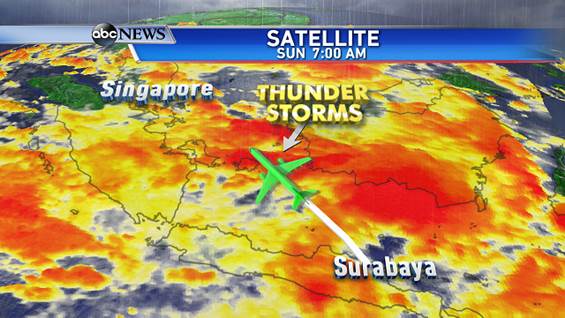Businesses brace for loss in productivity
KUALA LUMPUR: As Malaysians enjoy the year-end holidays spanning Christmas, the weekend and on to the new year, they can look forward to more such long weekends next year.

With 13 national holidays and 23 state holidays next year falling on either Thursday, Friday, Saturday, Sunday or Monday, there are easily seven “long weekends” if one plans for them.
January’s long stretch comes from Prophet Muhammad’s Birthday (Saturday, Jan 3) falling close to New Year’s Day (Thursday).
Chinese New Year (Thursday and Friday) will provide the extended break for February, while May’s rest from labour comes from Wesak Day (Sunday) coming two days after Labour Day (Friday).
Hari Raya Aidilfitri is expected to fall on the third Friday and Saturday of July, while National Day is on the last Monday of August.
Hari Raya Haji falls on a Thursday in September, while in states like Kedah, Kelantan, Perlis and Terengganu, Hari Raya Haji is observed for an additional consecutive day.
For states observing Sunday as rest day, November’s extended break could come from Deepavali, which falls on a Tuesday.
And the year ends with a second celebration of the Prophet Muhammad’s Birthday, which falls on Christmas Eve due to a shortened Muslim calendar next year.
Businesses are bracing for some impact on productivity as they anticipate employees will apply for additional leave to create their own extended breaks.
Malaysian Employers Federation (MEF) executive director Datuk Shamsuddin Bardan stressed it was critical for companies to plan ahead for these long stretches in order to maintain output and productivity.
“Companies need to work together with their employees so there would not be any major losses,” he said.
Meanwhile, Small and Medium Enterprises (SME) Association of Malaysia national president Teh Kee Sin said there would usually be a productivity drop of between 20% and 30% during long holiday periods.
 The only thing we dread are holidays that are declared at the last minute as these do not provide us enough time to prepare. — Teh Kee Sin
The only thing we dread are holidays that are declared at the last minute as these do not provide us enough time to prepare. — Teh Kee Sin
“In fact, many SMEs limit the number of public holidays to no more than 14 days a year.
“According to labour laws, employees in the private sector are entitled to 10 public holidays, with Labour Day, the King’s birthday, the Sultan’s birthday (state holiday) and National Day being compulsory holidays,” he said.
“The only thing we dread are ‘holidays’ that are declared at the last minute as these do not provide us enough time to prepare,” he added.
With 14 national holidays covering 16 days, Malaysia is in the global top 10 in terms of number of public holidays, with one survey ranking us at seventh.
Malaysians already eyeing next year's holidays
PETALING JAYA: Even as they are vacationing, Malaysians are already planning for next year’s holidays.
Malaysian Association of Tour and Travel Agents (MATTA) vice-president of ground transportation Jayakumar S. Sinnadurai said companies have started making reservations with travel agencies for their corporate trips.
“We have received bookings for the weekends extended by celebrations such as, Wesak Day (Sunday) and Chinese New Year,” he said.
“Islands in the east coast of the peninsula like Pulau Tioman, Pulau Kapas and Pulau Perhentian are popular choices.”
National Tourism Council of Malaysia vice-president Jimmy Leong Wie Kong claimed that more companies are organising such trips as a form of incentive for employees.
“Long weekends are great as they do not restrict company trips to just nearby locations,” Leong said.
“Such incentive trips help in employer-employee bonding and are increasingly popular.
Individuals are also planning their “escapades”.
Web designer Ivan Tong Tian Shen, 26, is looking forward to his next hike.
“I went on a 14-day trek on the Annapurna trail in Nepal earlier this year with a bunch of good friends,” he said.
“I was captivated by the breathtaking view and want to relive the experience.”
Banking executive Grace Chu, 25, who works in Kuala Lumpur, is hoping for more than just one visit from her parents in Sabah this year.
“Since they live so far away, I usually only get visits from them once a year,” said Chu, who misses her mother’s cooking.
Then there are those who just need a break.
Undergraduate Ng Lai Quan, 20, who is also an administrative and marketing assistant, said it was very stressful to study and work at the same time.
“I’m lucky to be able to manage my time but it leaves me exhausted every day when I get home,” said Ng, who is pursuing a degree in business management in Klang.
“I am grateful for these extended weekends because they give me time to rest.”
Despite all the enthusiasm for travel, MATTA is still priming itself for a weak first half for next year, business-wise.
“It is going to be a challenging year ahead. The weakening ringgit and the imposition of the Goods and Services Tax will definitely affect the tourism industry,” said MATTA president Hamzah Rahmat.
According to Hamzah, some upside including a return to normalcy is expected in the second half of 2015, after consumers are accustomed to the changes.
Borneo Trails Travel and Tours Sdn Bhd managing director Datuk Tan Kok Liang also believed that the weaker ringgit would discourage outbound travel.
By Sesiree Tresa Gasper and Adrian Chan The Star/Asia News Network
 New lawyer Darren Tan, once 10 years in jail; S'pore CJ: do criminal and family law
New lawyer Darren Tan, once 10 years in jail; S'pore CJ: do criminal and family law









